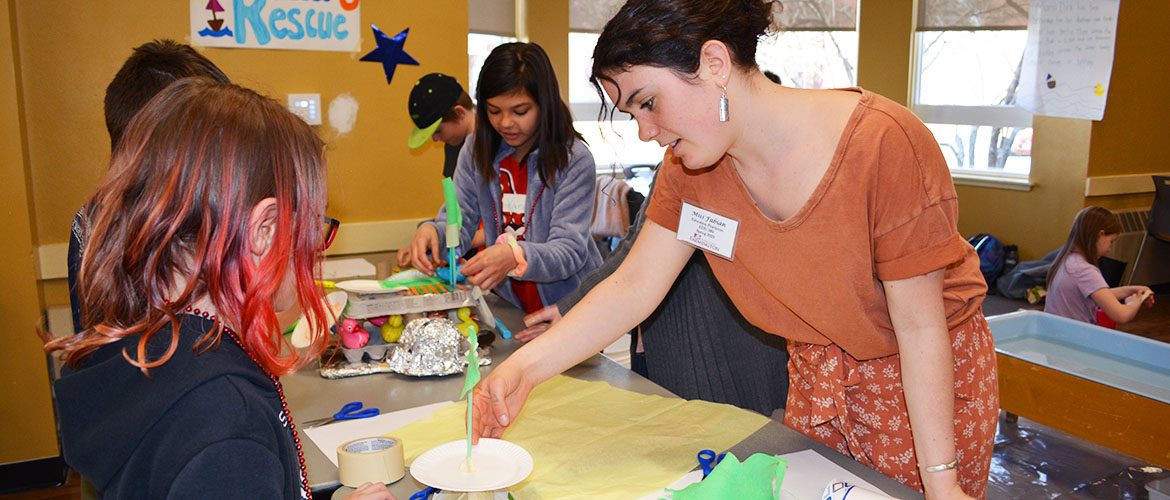Designed for educators who want to explore the integration of Science, Technology, Engineering, Arts and Math (STEAM) in their classrooms in order to nurture creativity and critical thinking skills in early and elementary learners. This graduate-level certificate brings STEAM education to teachers of earlier grades to help them open the door that will lead to increased numbers of Maine’s young people who consider joining STEM fields.
Flexibility
- Complete as a standalone certificate program
- Complete as part of one of our master’s programs
What will you study?
-
- The core concepts of STEAM disciplines and how to identify/expand them in your current practice
- Effective instructional strategies for integrating STEAM disciplines
- How to design, develop, and implement activities to support creative and innovative STEAM curriculum
- The impact of equity and access to STEAM curriculum and how to advocate for STEAM resources
Join Program Request More Information Request a Meeting
Required Courses
This course is designed for students to understand and apply theoretical concepts of engineering into early learning and elementary classrooms. This course addresses the development of inquiry-based engineering curriculum in early childhood and elementary settings.
This course is designed for students to understand and apply theoretical concepts of STEAM into early learning and elementary classrooms. This course is an introduction to the integration of science, technology, engineering, arts, and math in early childhood and elementary settings.
This course immerses learners in the iterative processes of design thinking to address authentic and relevant problems of practice in their educational communities with a focus on STEAM. Participants will attain the ability to leverage design thinking to address educational challenges in their learning communities creating innovative solutions to meet learner needs.
Choose two electives from the following courses
This course is designed for students to understand and apply theoretical concepts of computational thinking (CT) for technology integration into early learning and elementary classrooms. The course begins with pre-computational thinking concepts and how to introduce them to early learners
This course is designed to provide students with the ability to integrate developmentally appropriate technology into the early childhood classroom, birth to age eight. Students will gain the skills to apply technology-mediated family engagement strategies.
This course is designed for elementary teachers who wish to increase both their math content knowledge and the methods they use to teach math content.
Using children’s literature as the foundation, PreK-8 educators will develop their understandings of place-based instruction situated within the context of Maine. As educators engage in experiential learning, they will link key scientific concepts to literature; connect with the natural world around them; consider its history and natural resources; and gain an understanding of techniques that can be used to bring learning to the outdoor environment.
This course addresses the development of inquiry-based science curriculum in the early childhood setting. Rooted in constructivist approaches, it incorporates topics of scientific literacy, conceptual development, content areas, current research and curriculum development, implementation and evaluation.
Advanced course using creative arts as a central approach to teaching and learning. The course explores creativity and a deeper understanding of the Arts (visual arts; music and movement; dramatic play) in early childhood education.
Contact Us
Division of Graduate & Continuing Education
University of Maine at Farmington
Theo Kalikow Education Center
186 High Street
Farmington, Maine 04938
tel 207-778-7502
fax 207-778-8134
TYY (via Maine Relay Service) dial 711
gradstudies@maine.edu
Mailing address:
Division of Graduate & Continuing Education
University of Maine at Farmington
111 South Street
Farmington, Maine 04938


